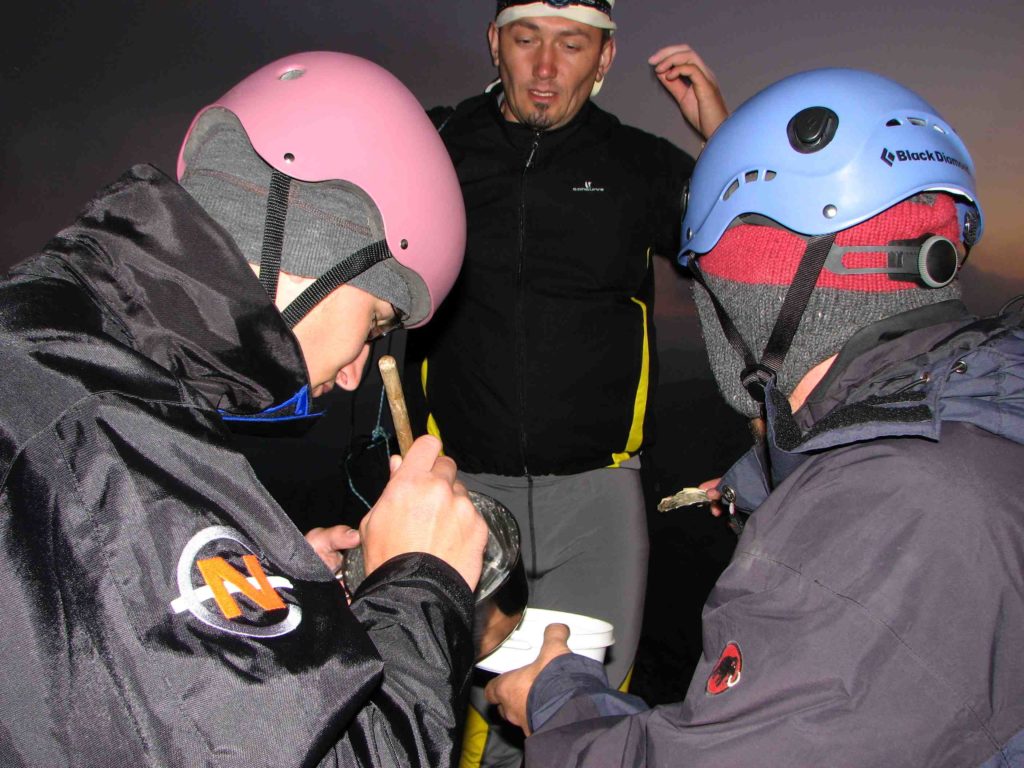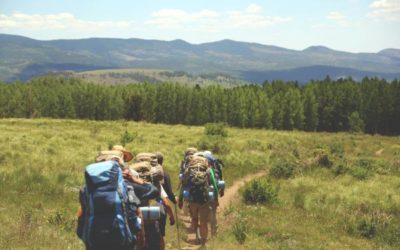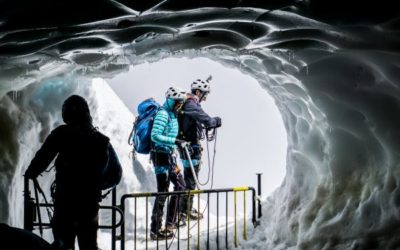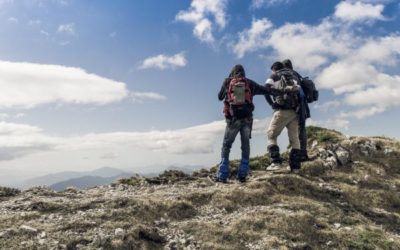Paralysis in decision-making can plague leaders and cause their followers to suffer for lack of strong leadership. In my earlier post, “The 3 E’s of Rapid Decision-Making in Outdoor Leadership” we looked at how the outdoor environment helps leaders grow in their ability to grow in rapid decision-making. The good thing is that we can all grow in our ability to make good timely decisions to give our group the best and safest possible experience. The ability to make rapid decisions boils down to a combination between 1) experiences, 2) efficiency, and 3) exposure.
1. EXPERIENCES
Engross yourself in more wilderness experiences. The more experiences leaders have in a variety of scenarios the better. This includes experiences in a variety of outdoor pursuits like backpacking, rock climbing, mountain biking, sea kayaking, etc. Don’t be a uni-outdoor leader. Even if your primary outdoor ministry opportunities keep you locked into one kind of outdoor pursuit, keep up-skilling yourself in other outdoor pursuits to expand your log of experiences (See “4 Reasons to Keep and Outdoor Journal-Log Book“).
Advanced outdoor leaders push themselves to gain experiences in a variety of climates. The easiest way to expand your horizons here is to lead others in the outdoors in a variety of seasons and terrains. For example, if you love summer activities but avoid the cold of winter, then push yourself out of your comfort zone and gain some experiences leading others in the winter. Or if you love the mountains, try gaining some experience on the sea. If you love lush rain forests, look for an opportunity to plan a desert experience.
This is also one of the reasons why I recommend that colleges or universities with outdoor leadership programs work hard to offer internships or intensive practice in a variety of climates, terrains, and even cultures (this is why I teach a course in Denver Seminary’s Outdoor Leadership concentration called Adventure Ministry in Cross-Cultural Contexts). The more diverse your training and experience, the better you will be at leading others and training others in the nuances of outdoor leadership.
2. EFFICIENCY
Enhance your efficiency. One of the most striking aspects of outdoor leadership is the need for efficient application of your skills in a variety of circumstances. The outdoor environment is intense so you have to work fast. Weather conditions can change quickly. Terrain obstacles can surprise you. You may have to figure out what to do with a thirsty group when you discover a dried up intermittent stream you were counting on for water. Or you may discover an unanticipated rock face standing in the way of what you thought was going to be a a fairly straight-forward peak climb with your group. If your outdoor leadership skills are strong and you have prepared through consistent practice, when surprises arise you can efficiently lead your group through them.
3. EXPOSURE
Expect exposure. The reason efficiency is so crucial is because of exposure in wilderness travel. Regardless of 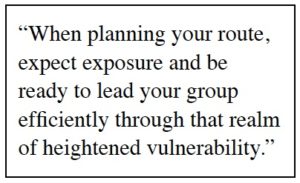 how ready your group is, there are times on a route when you are exposed. Risk is a good thing if it is managed well. If there were no risks, it would not be a true wilderness experience. When planning your route, expect exposure and be ready to lead your group efficiently through that realm of heightened vulnerability. You may have to get across a glacier in a timely manner. You may need to climb quickly up a long peak so that you can complete your route before early afternoon when lightning becomes a threat. As an outdoor leader your most basic responsibility is to efficiently move your group through realms of exposure.
how ready your group is, there are times on a route when you are exposed. Risk is a good thing if it is managed well. If there were no risks, it would not be a true wilderness experience. When planning your route, expect exposure and be ready to lead your group efficiently through that realm of heightened vulnerability. You may have to get across a glacier in a timely manner. You may need to climb quickly up a long peak so that you can complete your route before early afternoon when lightning becomes a threat. As an outdoor leader your most basic responsibility is to efficiently move your group through realms of exposure.
The Apostle Paul was constantly faced with various forms of exposure and intense situations where he had to make rapid decisions. With the aid of wisdom gained from his experiences and the help of the Holy Spirit guiding him on his missions, he is a model of rapid decision-making:
Three times I was shipwrecked; a night and a day I was adrift at sea; on frequent journeys, in danger from rivers, danger from robbers, danger from my own people, danger from Gentiles, danger in the city, danger in the wilderness, danger at sea, danger from false brothers; in toil and hardship, through many a sleepless night, in hunger and thirst, often without food,in cold and exposure. And, apart from other things, there is the daily pressure on me of my anxiety for all the churches.
Paul’s life is a model of experiences + efficiency + exposure = rapid decision-making skills. And it is amazing to see all of the good fruit and blessing that came to so many others because of his decisive leadership style.
Here is the outdoor ministry application: if you wonder whether your group has the skill to move efficiently enough through a realm of exposure that you expect coming up, then take the time to patiently teach and practice the skills your group needs to move through the terrain. Lack of skill will slow you down, and that could increase your risk exponentially. As my friend Izzy Ismert of Young Life’s Wilderness Ranch said in his recent post, “Casual can lead to catastrophe outdoors!”
OUTDOOR LEADERS ARE TENACIOUS LEARNERS
Since outdoor leaders must engross themselves in wilderness experiences, enhance their efficiency, and expect exposure, they have to love learning. If you don’t love to learn, just stop leading now, because you are more hazardous than helpful. But if you are a learner and you want to grow in your rapid decision-making skills then make a plan this year to grow. Outdoor leaders are life-long learners who engage in a variety of wilderness experiences. They must be efficient in the midst of repeated realms of exposure. Do this and you’ll be a better leader for it.
TAKE ACTION
- Experiences: Make a top 10 list of new outdoor pursuits you could try this year in a variety of terrains, climates, and/or cultures.
- Efficiency: Identify 3 outdoor leadership skills that are rusty or non-existent, and make a plan to excel at them this year.
- Exposure: Ask someone you trust to lead you into a new outdoor pursuit where you will be exposed and forced to use your skills, but you will be under the tutelage and care of an experienced outdoor leader who can help you succeed in your pursuit.
